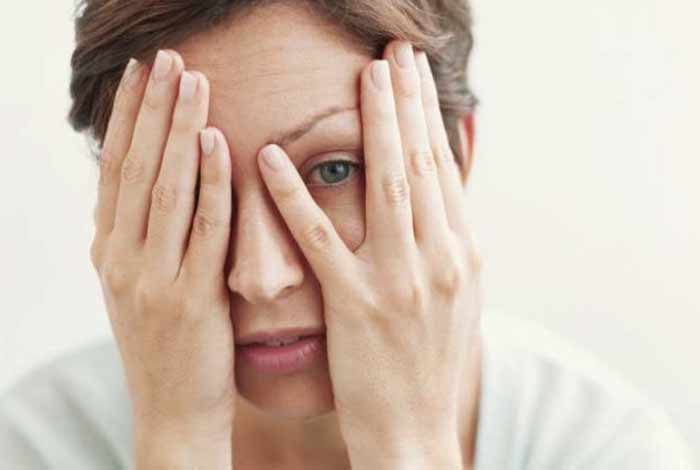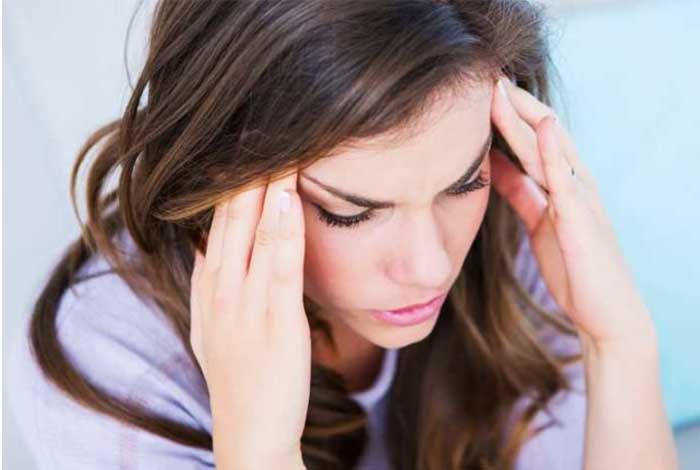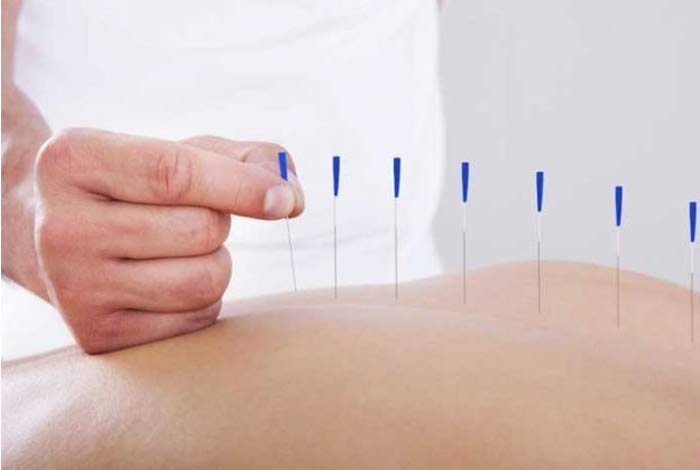
Generalized Anxiety Disorder – Causes, Symptoms, Prevention and Treatment

Overview and Statistical Facts
It is quite normal to feel anxious and stressed time to time. Feeling anxious about examination, job interview or a medical test is normal. However, a person with generalized anxiety disorder (GAD) finds it difficult to control his worries. They feel constantly anxious which might start disrupting their daily life, affect their relationships and quality of life. GAD is a type of anxiety disorder and is also known as chronic anxiety neurosis. It is characterized by excessive and persistent worry about various things or situations. This might also happen when there is no apparent reason to worry.
A person might develop GAD as a child or an adult. The symptoms of this disorder are similar to those in obsessive-compulsive disorder (OCD), panic disorder and other types of anxiety, but all of them are different conditions. GAD is a long-term condition that causes a person to feel anxious about several issues and situations, rather than a particular issue or event. In many cases, GAD occurs along with other mood and anxiety disorders. Conventionally, treatment for this disorder includes medications and psychotherapy. Practicing relaxation techniques, learning to cope with situations and making necessary lifestyle changes help in managing anxiety.
According to the Anxiety and Depression Association of America, 3.1% or 6.8 million of the U.S. population are affected by GAD. Only 43.2% of the affected population receive treatment. Women are twice as likely to develop the disorder.
Symptoms of Generalized Anxiety Disorder
The psychological symptoms of GAD are:
- Persistent anxiety or worry about several situations without any apparent reason
- Overthinking everything and planning for all possible worst-case scenarios
- Perceiving situations and things as threatening, even if they are not
- Difficulty in handling uncertainty
- Fear of making wrong decisions or being indecisive
- Inability to let go of a worry
- Feeling restless, having a feeling of dread
- Feeling constantly about being “on edge”
- Difficulty in concentrating
The physical symptoms of GAD are:
- Fatigue or tiredness
- Trouble in sleeping or insomnia
- Muscle aches and tension
- Trembling or feeling twitchy
- Nervousness
- Fast paced and irregular heartbeats (palpitations)
- Excessive sweating
- Stomach ache
- Irritability
- Shortness of breath
- Feeling sick
- Headache
- Diarrhea, nausea and irritable bowel syndrome
Children and adults with GAD have similar worries, but children might excessively worry about:
- Family members’ safety
- Performance in sports events
- Academic performance
- Being on time (punctuality)
- Nuclear war, earthquakes and other catastrophic events

Risk Factors of Generalized Anxiety Disorder
The risk factors of GAD are:
Sex: Women are twice as likely to develop GAD than men. It might be because of the cultural expectations, hormonal factors, willingness to go to doctor and talk about anxiety.
Family History and Genetics: GAD can be hereditary, i.e., it can be passed on from one generation to another. The reasons might be failure to learn effective coping skills, over-protective behavior, violence and abuse. About one-fourth of first-degree relatives, i.e. a person’s parents, sibling or children develop this disorder.
Substance Abuse: Alcohol, smoking and drug use might increase the risk of developing GAD.
Personality Factor: A person who is negative, timid or avoids every dangerous situation is more prone to develop the disorder.
Depression or other Anxiety Disorders: People with mild/severe depression and having other anxiety disorders are more likely to develop GAD. People with chronic diseases may also develop this disorder.
Ethnic and Socio-Economic Factors: Financially weak members of minority groups tend are at a greater risk of developing GAD.
Stressful and Traumatic Events: Susceptible people who have been through life-changing, negative or traumatic events like childhood abuse, job loss, relationship break or loss of a loved one, tend to have higher risk of developing GAD.
History of Self-Harm or Suicide: Teens or adolescents who have an history of self-harm with or without an intention of suicide, have higher risk of developing the disorder.

Do I have Generalized Anxiety Disorder?
There are several signs which shows a person might have developed GAD. These are:
- Worrying so much that it is interfering with your work, relationships or daily activities
- Feeling irritable or having depressed throughout
- Worrying excessively about several things and situations, without any reason
- Having suicidal thoughts
- Having thoughts that are extremely upsetting and stressful
- Feeling worried nearly every day from the last six months
- Several anxiety disorders like panic disorder, post-traumatic stress disorder (PTSD), depression also have anxiety as a common symptom. Constant anxiety and worry might also be caused due to hyperthyroidism, anemia, substance abuse or its withdrawal.

Causes and Prevention of Generalized Anxiety Disorder
Causes of Generalized Anxiety Disorder
The causes of GAD are:
Genetics: Generalized anxiety disorder runs through families, i.e. it may pass on from one generation another. Hence, genetics plays an important role in development of the disorder. First-degree relatives of the person suffering from the disorder might develop this disorder.
Brain Chemistry: If the pathways that connect various regions of the brain work in an abnormal manner, it may lead to the development of GAD. These abnormal changes in the neural pathways lead to mood changes and anxiety.
Environmental Factors: Stressful events and trauma like loss of a job, relationship break, or loss of a loved one may lead to generalized anxiety disorder. It might also be caused as a withdrawal symptom or by overuse of certain addictive substances like alcohol, nicotine, caffeine, recreational drugs, etc.

Prevention of Generalized Anxiety Disorder
The following measures can prevent generalized anxiety disorder:
- Take care of your body by consuming a well-balanced diet that has high nutritional value
- Limit caffeine, alcohol and sugar consumption
- Relax for about 20 minutes a day by doing something recreational or creative
- Avoid activities that are unnecessary and hectic
- Maintain an anxiety journal; note down the anxiety triggers and your feelings
- Interrupt your hyperventilation (fast breathing) by inhaling and exhaling from a paper bag, for a few minutes
- Prioritize the issues in your life by managing your energy and time
- Get help early to control anxiety

Diagnosis and Tests for Generalized Anxiety Disorder
To diagnose generalized anxiety disorder, the mental health professional or doctor may:
Conduct a physical examination to confirm the disorders that might be causing the symptoms like panic disorder, depression or any other anxiety disorder. The doctor might also try to figure out if any other medication is causing the symptoms
- Conduct urine or blood tests, if he diagnoses some other conditions like anemia or hyperthyroidism
- Ask details about medical history and symptoms
- Use a psychological questionnaire to help in GAD diagnosis.
- Refer to the criteria published by the American Psychiatric Association in the Diagnostic and Statistical Manual of Mental Disorders (DSM-V)

Treatment and Care for Generalized Anxiety Disorder
Treatment for Generalized Anxiety Disorder
The treatment for generalized anxiety disorder involves psychotherapy and medications. A combination of these can help in reducing anxiety associated with the disorder. The treatment option depends on how severely GAD is affecting your ability to function. Treatment of GAD includes:
1. Psychotherapy: It is also known as talk therapy. It is the most preferred treatment for the disorder. It has proved to be more effective and better treatment than the medications. It helps the person in understanding generalized anxiety disorder and cope up with anxiety. Cognitive behavioral therapy (CBT) is a type of psychotherapy. During CBT sessions, the therapist teaches the person to directly manage the anxiety. With a successful CBT treatment, the person can continue doing usual normal tasks that he/she avoided due to anxiety. Anxiety and excessive worry will gradually decrease in few weeks and finally disappear in a few months. Psychotherapy involves exposure treatment, stress reduction, relaxation training, mindfulness exercises, and cognitive reconstructing.
2. Medications: There are several medications that help in reducing the symptoms associated with the generalized anxiety disorder. The medications that are effective in GAD are:
- Antidepressants: These are the first-line treatment for GAD. Selective serotonin reuptake inhibitors (SSRIs) and serotonin norepinephrine reuptake inhibitors (SNRIs) are the antidepressants that are used to treat this disorder. These include paroxetine (Pexeva, Paxil), duloxetine (Cymbalta), escitalopram (Lexapro) and venlafaxine (Effexor XR). Several other antidepressants might also be prescribed by the doctor.
- Benzodiazepines: These are sedatives and central nervous system (CNS) depressants. Sedatives are substances that produce a state of sleep and calm in a person. The doctor might prescribe these only in a few cases. Benzodiazepines might be addicting and may cause physical or mental dependence with prolonged use or in high doses. These are usually used for short-term effects. Benzodiazepines might also cause several side-effects by interacting with other medications. Some common benzodiazepines are lorazepam (Ativan), alprazolam (Xanax) and clonazepam (Klonopin).
- Buspirone: This is a common anti-anxiety medication. Like most other anti-depressants, it takes several weeks to reduce anxiety.

Care during Generalized Anxiety Disorder
Breathe deeply and slowly while having anxiety. Try breathing techniques that help in calming your body.
- Remind yourself repeatedly that anxiety and worry will cease
- Focus on optimistic, peaceful and calming images
- Try to distract your mind from anxiety by listening to music, deep breathing and trying to calm yourself
- Remember that it isn’t dangerous or life threatening
- Learn more about the disorder to understand it better
- Avoid the triggers that initiate anxiety
- Use progressive muscle relaxation techniques

OTC or Self-Management Methods for Generalized Anxiety Disorder
There is no OTC for generalized anxiety disorder. However, a person can take prescribed medications.
Certain herbal supplements like vitamin B, vitamin C, zinc, Valerian, Kava and passionflower can be used along with the treatment. The person suffering from this disorder must consult doctor before using these supplements as they have some serious side-effects.

Self-Management Methods for Generalized Anxiety Disorder
- Stick to the treatment plan religiously.
- Practice coping techniques used in the cognitive behavioral therapy.
- Avoid caffeine, alcohol, illicit drugs and other recreational drugs as these might worsen the symptoms.
- Get out of your house each day to feel relaxed and calmed. Its advised to socialize to reduce anxiety.
- Do not live in the past and learn to forget past concerns.
- Get physically active and exercise for around 30 minutes daily to reduce the symptoms of generalized anxiety disorder. Do yoga and meditate for a healthy mind and body. It also creates a sense of positivity.
- Talk to someone you trust and share your feelings.
- Learn more about the disorder. It helps in avoiding anxiety and excessive worrying.
- Join a support group to get motivation and inspiration.
- Avoid smoking and keep yourself away from secondhand smoke, these might trigger anxiety.
- Get sufficient rest and sleep. Sleep for at least seven hours daily.
Involve yourself in some recreational tasks to divert your mind from anxiety. - Take care of your overall wellbeing, mental and physical health.
- Focus on eating healthy. Increase intake of vegetables, whole grains, avocados, oats, blueberries, meat, milk, fruits, eggs and fish. Eating dark chocolate helps in reducing anxiety.
- Eat at regular intervals and keep the blood sugar level stable. It helps in preventing symptoms associated with generalized anxiety disorder. Consuming chamomile tea can provide soothing and calming effect to the body.

Natural Ways to Cure Generalized Anxiety Disorder
The natural ways to cure generalized anxiety disorder are given below:
- Aromatherapy: It is a technique that uses essential oils for improving physical and mental conditions. It helps in maintaining overall health and well-being of a person. Natural oils of lavender and bergamot help in coping with the generalized anxiety disorder symptoms. They also boost positive attitude and mood of the person.
- Massage Therapy: This therapy involves manipulation of the muscles by rubbing, pressing, kneading and patting different muscle groups. The therapists use their hands and oils for massaging. Various types of massage include Swedish massage, sports massage and deep tissue massage. Acupressure is an ancient Chinese massage wherein the therapist applies mild to firm pressure by fingers. The pressure is applied on the pressure points known as meridians. This helps in relieving stress, pain, headache and other anxiety-related issues.
- Acupuncture: Acupuncture involves inserting fine needles in the skin at various points called meridians. These points are the points of energy blockage. . A person suffering from generalized anxiety disorder must go only to the licensed practitioners for acupuncture. This process in reducing anxiety and other symptoms related to the GAD.
- Hypnotherapy: In hypnotherapy, the therapist helps a person enter into an altered state of consciousness known as trance state. In a trance state, the person feels more calmed, relaxed and is more open to suggestibility. The therapist then gives positive affirmations or thoughts to the person which would help him/her to alter the thinking patterns. This will eventually help in coping up anxiety. Hypnotherapy helps in relieving stress, depression, post-traumatic stress disorder, headaches, migraines and irritable bowel syndrome.
RelaxatiHypnotherapy:on Techniques: These techniques help in reducing stress, managing anxiety and dealing with other symptoms associated with GAD. The basic of these relaxation techniques is deep breathing. Other relaxation techniques that help in reducing anxiety are progressive muscle relaxation, visualization, and meditation.

Health Tip by Expert
It is advised to seek treatment early as anxiety can be difficult to treat at later stages. Generalized anxiety disorder is best treated with psychotherapy and medications. However, supplements like Kava and Valerian might interfere with other medications and cause several side-effects. It is better to consult your doctor before taking any supplement. Healthy diet and exercise can help in preventing this disorder.




